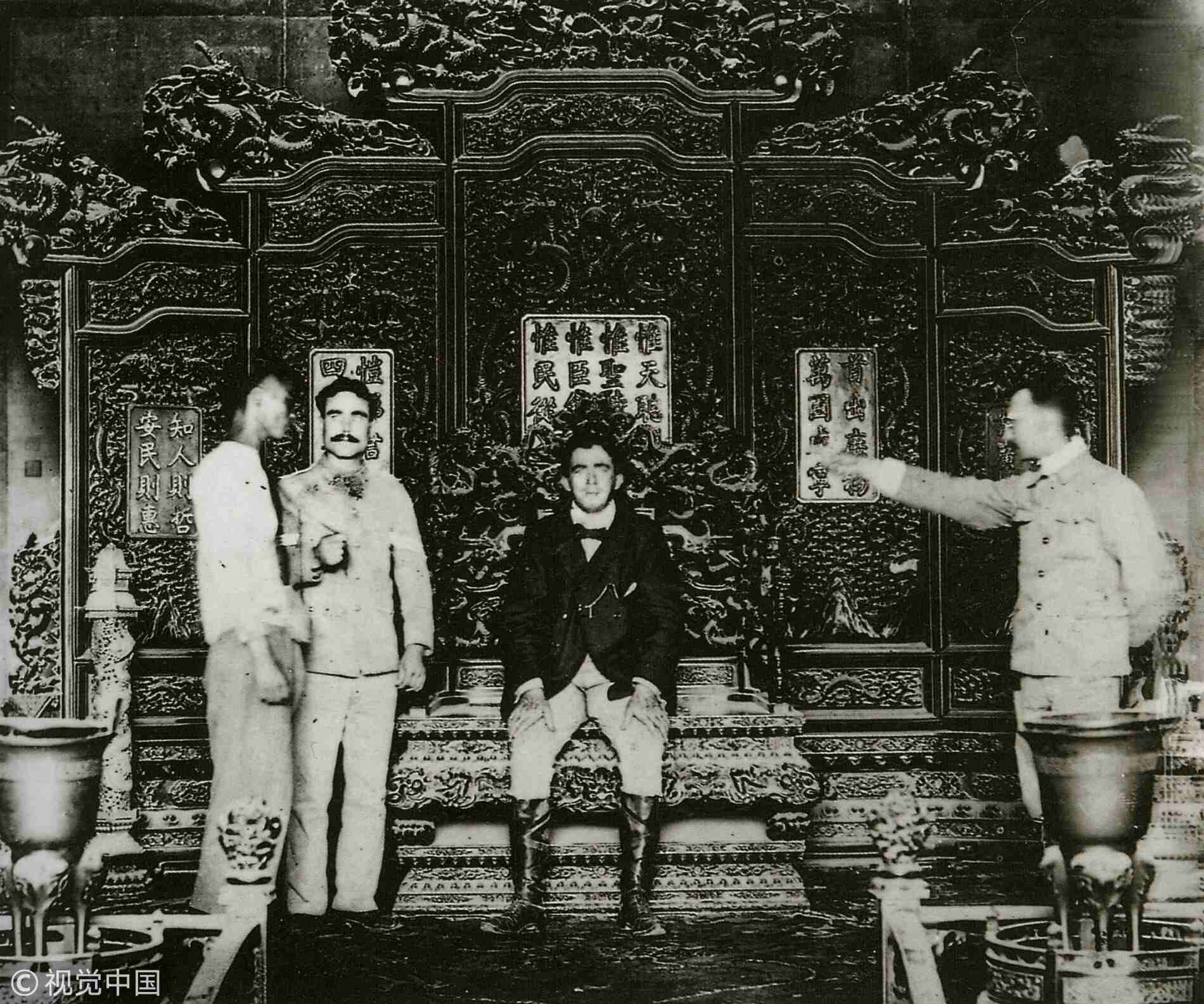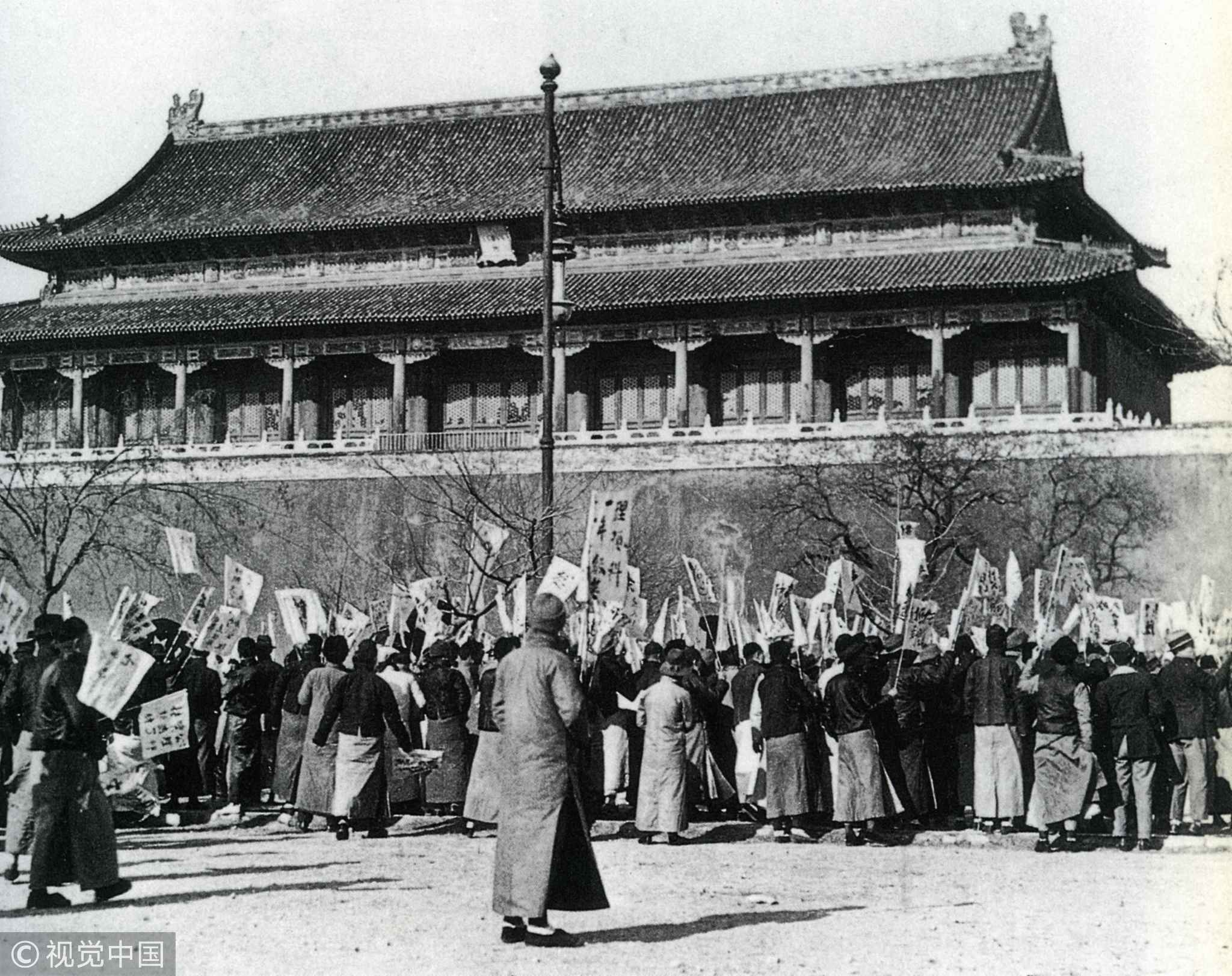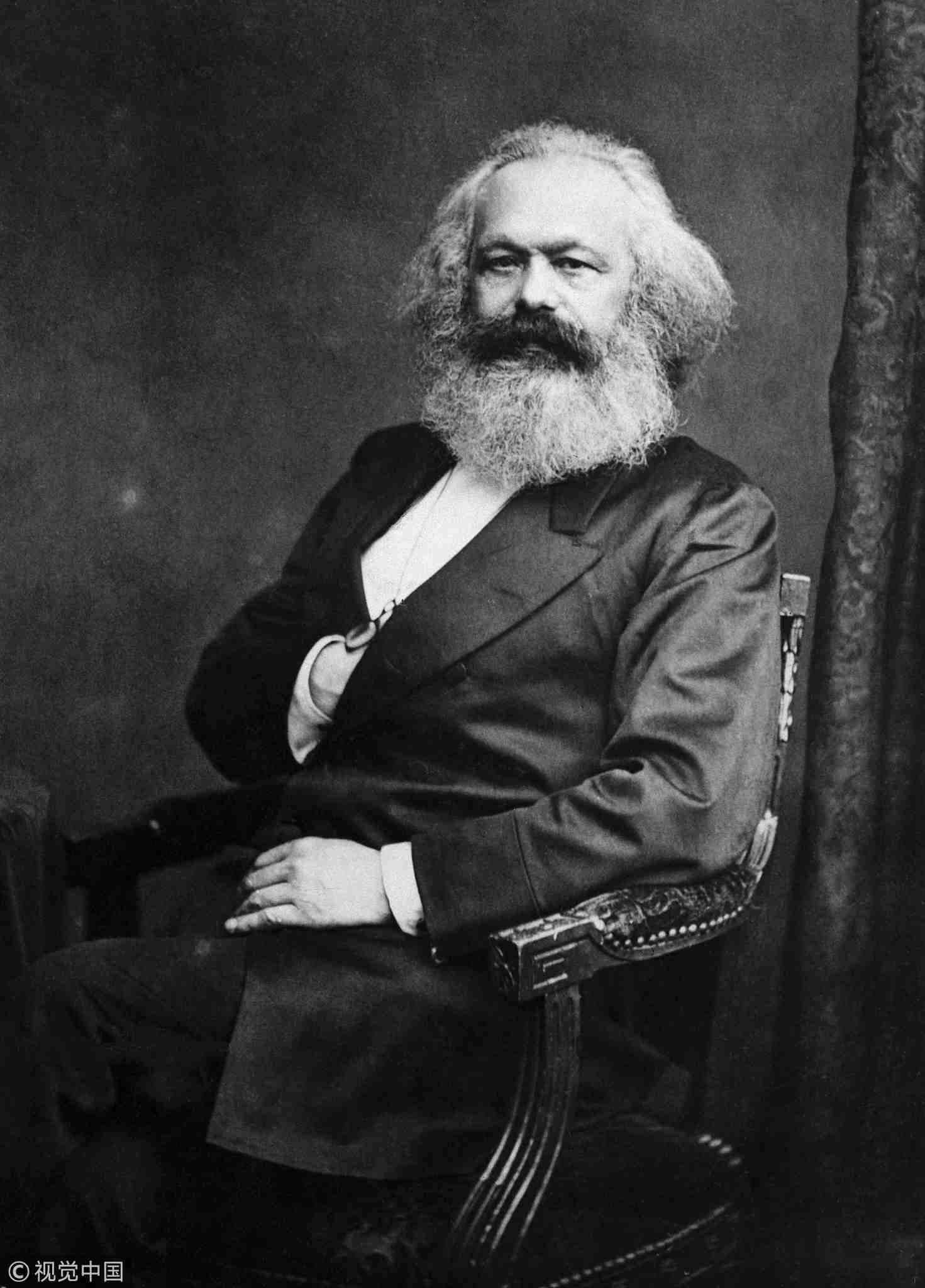
Opinions
11:39, 12-Nov-2018
Opinion: What impact did WWI have on China?
Updated
10:47, 15-Nov-2018
David Bartosch

Editor's note: Dr. David Bartosch is a professor at the School of International Relations and Diplomacy at the Beijing Foreign Studies University. The article reflects the author's opinion, and not necessarily the views of CGTN.
Word War I (WWI) was a horrific event of unknown proportions. With all civilizations involved, industrial warfare generated an uncontrollable momentum for the first time. Millions were trapped and consumed by the mechanized blood lust they had been lured into.
Those who survived the thunderstorms of steal and deadly vapors were left crippled, left with an inextinguishable horror of what they had witnessed in their dead eyes. Millions of civilians were starved to death or killed in other ways.
WWI meant a shocking relapse into a state of things thought of as vanquished long ago. While having sat on the fence at first, Germany's resumed 1917 declaration of unrestricted submarine warfare led to China's entry into the alleged "war to end all wars."
But Britain's Opium Wars, related havoc like the Taiping Civil War, other upheavals and terrible famines, the intrusions of the Eight-Nation Alliance, or the chaos in the aftermath of the collapse of the Qing Empire in 1911 and much more had left China in a terrible condition of disintegration at the time.

Intruders of the Eight-Nation Alliance inside the Palace of Heavenly Purity (Qianqing Gong) as one of them sits on the emperor's throne. / VCG Photo
Intruders of the Eight-Nation Alliance inside the Palace of Heavenly Purity (Qianqing Gong) as one of them sits on the emperor's throne. / VCG Photo
Lacking military capacity and economic means, the government decided to send about 140,000 workers. These provided irreplaceable services on the eastern and western fronts. Many historians agree that it was the contribution of these Chinese workers which prevented a German victory.
Many of the Chinese workers were from east China's Shandong Province where the German colonies had been located. In 1914, Britain had promised to return Chinese property when the war would be over.
After the victory, the British negotiating party at Versailles agreed to assign China's property to Japan instead. This decision added fuel to the fire of Japanese expansionism. The following years of invasion and civil war in China all have close links to WWI and those ill-fated decisions.
On the other hand, it was this renewed humiliation which produced the sparks to kindle the light along the winding and dangerous road to liberation and unification in 1949. Perceived as an unbearable injustice, the outcome of Versailles triggered the May Fourth Movement.

Demonstrators gathered in front of the Tian'anmen Gate on May 4, 1919, after the Versailles treaty revealed the content which showed then Chinese ruler Duan Qirui's deals with Japan. / VCG Photo
Demonstrators gathered in front of the Tian'anmen Gate on May 4, 1919, after the Versailles treaty revealed the content which showed then Chinese ruler Duan Qirui's deals with Japan. / VCG Photo
Chinese people of different social classes spoke in one voice for the first time. With the breach of trust and the Versaille treaty seen as a hoax, the Western political system completely lost its credibility. It started to be perceived as hypocritical.
1919 meant a turning point in the history of modern China. Many of the Chinese workers and the small groups of educated Chinese students had overcome the class divide during the war.
Two thirds of the Chinese workers had learned to read and write during their war-time stay. A little but influential Chinese proletariat had emerged close to the trenches. These people brought technological and professional skills back home.
At the same time, young scholars, being versed and educated in the traditions of 3,000 years of Chinese state wisdom, started to be inspired by the developments in the Soviet Union.
During the 1920s, the first translations of Karl Marx's ideas started to circulate. The question of poverty and social injustice had to be addressed. A new group of young leaders emerged.

Karl Marx was a German philosopher, economist, historian, sociologist, political theorist, journalist and socialist revolutionary. /VCG Photo
Karl Marx was a German philosopher, economist, historian, sociologist, political theorist, journalist and socialist revolutionary. /VCG Photo
Realizing that China would have to regain control of its own destiny, their motivation was to make right what had been spoiled. This genuine wisdom of rejuvenation, being transformed and elevated into a new and modern social movement became the driving force to strive for peace, unity and social justice.
Today's world-transforming process of Chinese cultural rejuvenation is related to these small beginnings.
China's modern spirit to create a sustainable multipolar world-economy on the basis of win-win and mutual cultural and civilizational respect, exchange and development, is also meant to nurture an intercultural rejuvenation between civilizations.
We all have to considerately pull in the same direction to create a planetary civilization of lasting peace. Humanity should realize that WWI, and WWII as well, were the most terrible – and last – warning shots for all of us.
(If you want to contribute and have specific expertise, contact us at opinions@cgtn.com)

SITEMAP
Copyright © 2018 CGTN. Beijing ICP prepared NO.16065310-3
Copyright © 2018 CGTN. Beijing ICP prepared NO.16065310-3